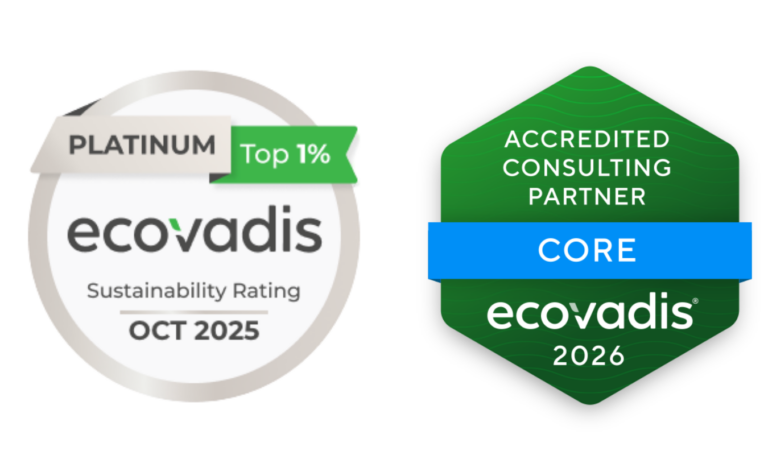Four Levels of Sustainability: From Compliance to Industry Leadership
How to Evolve Beyond Legal Requirements Towards Sustainability Excellence
In today’s business environment, sustainability is no longer optional – it’s essential for staying competitive and relevant. At The Ecological Entrepreneur, we’ve developed a framework that categorises businesses into four distinct levels of sustainability commitment. This approach helps companies understand their current positioning and identify the next steps in their sustainability journey.
From meeting the minimum legal requirements to leading the industry in sustainability innovation, these levels offer a clear path for businesses to follow. Whether you’re just starting out or aiming to embed sustainability deeply into your operations, our framework can guide your evolution towards a more responsible and forward-thinking business strategy.
Level 1: Compliance-Driven – Focusing on Legal Requirements
At the foundational stage, companies focus on meeting sustainability obligations solely to comply with laws and regulations. This is a reactive approach, where sustainability efforts are driven by external pressures rather than internal strategy. Adhering to frameworks like the Corporate Sustainability Reporting Directive (CSRD), Extended Producer Responsibility (EPR), and the Carbon Border Adjustment Mechanism (CBAM) ensures that companies meet their regulatory obligations. However, there is no proactive initiative to go beyond what is legally required.
Key Traits of a Compliance-Driven Business:
- Minimal data collection solely for regulatory reporting
- Reactive response to sustainability regulations
- Focus on meeting immediate legal requirements without long-term planning
At this level, the goal is simply to avoid penalties and ensure business continuity, but it leaves ample room for growth towards a more strategic and impactful approach to sustainability.
Level 2: Pragmatic Performer – Tackling Key Sustainability Challenges
The next stage represents companies that are starting to think beyond compliance. Here, sustainability becomes more than just a legal obligation; it begins to shape certain parts of the business. Companies in this stage address core sustainability issues that directly affect their operations, such as carbon emissions, resource efficiency, and responsible workforce practices.
Instead of focusing on compliance alone, these businesses target high-impact areas where they can be effective. For example, they may integrate carbon reduction measures into their supply chain, even if these actions aren’t legally required.
Key Traits of a Pragmatic Performer:
- Proactive in addressing key sustainability issues
- Selective focus on high-priority areas such as carbon emissions and resource use
- Practical integration of sustainability into operations
Although this approach remains somewhat limited in scope, it signals a company’s readiness to embrace sustainability as a competitive differentiator.
Level 3: Strategic Integrator – Embedding Sustainability into Core Strategy
At the “Strategic Integrator” stage, sustainability becomes embedded within the very fabric of the business. Companies now consider environmental and social factors in their decision-making processes across all departments, not just the sustainability team. Whether designing new products or developing services, sustainability is a core consideration, shaping innovation and long-term business strategy. For example, a company might redesign its product lifecycle to minimise environmental impact or implement sustainable sourcing practices throughout its supply chain. By integrating sustainability at every level, these businesses not only address key issues like carbon emissions and resource use but also actively seek to enhance their overall environmental and social impact.
Key Traits of a Strategic Integrator:
- Sustainability as a core business objective, influencing products and services
- Comprehensive integration across multiple business functions
- Broader focus on both environmental and social impact
This level represents a turning point, where sustainability is no longer an external requirement but an internal driver of growth and innovation.
Level 4: Frontrunner – Achieving Holistic Sustainability Leadership
At the highest level of sustainability commitment, companies strive for industry leadership, setting the benchmark for best-in-class sustainability performance. Frontrunners adopt a holistic approach, integrating Environmental, Social, and Governance (ESG) considerations across every aspect of their business model. Not only do they meet and exceed regulatory requirements, but they also pursue certifications from third-party sustainability bodies, ensuring transparency and accountability. Frontrunner companies are at the cutting edge of sustainability innovation, constantly exploring new ways to reduce their environmental footprint, support global sustainability goals, and engage in ethical practices. Their leadership in this area often inspires others in their industry to follow suit.
Key Traits of a Frontrunner:
- Leading the industry in sustainability practices and innovation
- Full integration of ESG and global sustainability models
- Certified by third-party bodies for sustainability excellence
- Focus on continuous improvement, transparency, and accountability
For these companies, sustainability is a source of competitive advantage, brand value, and long-term resilience.
Where Does Your Business Stand?
Understanding these four levels of sustainability maturity can help you determine where your company currently stands and where it can go next. While starting with compliance is necessary, the real value lies in progressing towards a more strategic, integrated, and ultimately, leading role in sustainability.
At The Ecological Entrepreneur, we specialise in guiding businesses through this transition. Whether you are just beginning your sustainability journey or seeking to achieve best-in-class leadership, our team can help tailor a strategy that meets your goals.
We bring ecology and economy together for your organisation! Choose your sustainable future.



